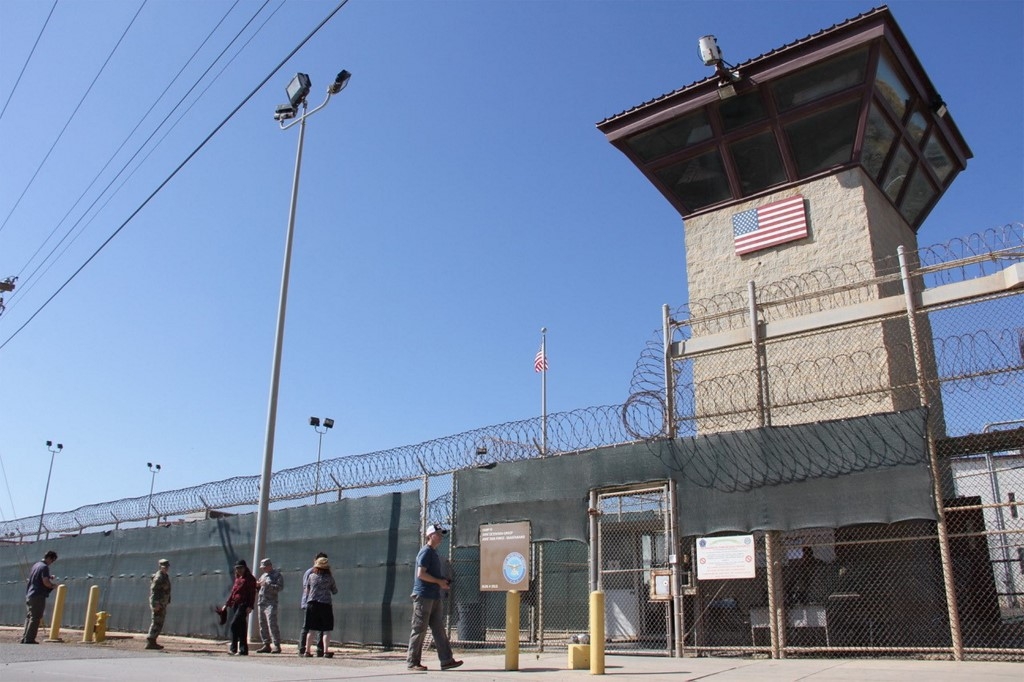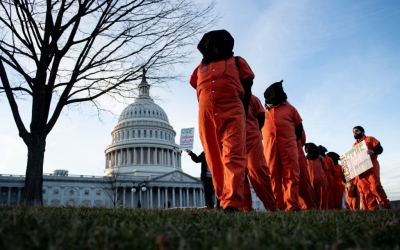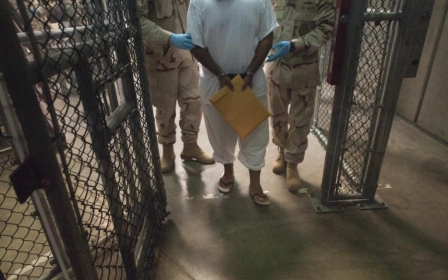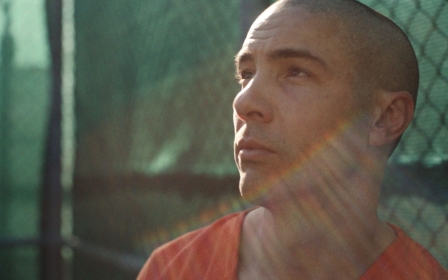Guantanamo 'forever prisoner' Abu Zubaydah to file complaint with UN agency

One of Guantanamo Bay's "forever prisoners" plans to file a complaint with the United Nations against his nearly two-decade imprisonment.
The lawyer of Zayn al-Abidin Muhammad Husayn, better known as Abu Zubaydah, will file the complaint with the UN Working Group on Arbitrary Detention, asking for intervention in his case.
Lawyer Helen Duffy, in a statement on Friday, said that her client's complaint will be filed against the United States and six other countries that allowed his transfer during the early days of his detention after he was captured in Pakistan in 2002.
'After 19 years... the only appropriate legal remedy for Abu Zubaydah is release and rehabilitation'
- Helen Duffy, Abu Zubaydah's lawyer
The petition will ask the UN agency to find that the US is obliged to release him. It demands that the other countries involved in his disappearance and rendition - the United Kingdom, Thailand, Afghanistan, Lithuania, Poland and Morocco - use their powers to secure his release and relocation.
In a statement on Friday, Duffy said that how US President Joe Biden responds to the complaint "will be a test of its newly stated commitment to international rule of law and human rights".
New MEE newsletter: Jerusalem Dispatch
Sign up to get the latest insights and analysis on Israel-Palestine, alongside Turkey Unpacked and other MEE newsletters
President Biden has vowed to close the prison camp at Guantanamo bay by the end of his first term.
'Release and rehabilitation'
Abu Zubaydah, 50, was born in the Palestinian territories but raised in Saudi Arabia. He was one of the first detainees to be tortured under the CIA's "enhanced interrogation" programme.
At the time of his capture, the CIA, along with then-president George W Bush, publicly claimed that he was a top-level al-Qaeda leader with direct connections to Osama Bin Laden.
But in 2006, the CIA conceded that Abu Zubaydah was never a senior member of al-Qaeda because he was never a member of the armed group to begin with.
"After 19 years of arbitrary detention, the only appropriate legal remedy for Abu Zubaydah is release and rehabilitation," Duffy said in a statement on Friday.
"His detention has no lawful basis in international law [and] offends all principles of due process," she continued.
Never charged or tried despite spending two decades in captivity, Abu Zubaydah has never confessed to being involved in any terror-related activities.
Earlier this week, the US Supreme Court agreed to hear an appeal by Abu Zubaydah, which requests that the court allows his lawyer to subpoena James E Mitchell and Bruce Jessen, the two CIA contractors and psychologists who created the torture techniques used on Abu Zubaydah and other Guantanamo prisoners, which included 83 instances of waterboarding.
The two contractors would be subpoenaed in connection with a Polish criminal investigation that was brought up after the European Court of Human Rights ruled that Abu Zubaydah had been tortured in 2002 and 2003 at CIA black sites, including one in Poland.
There are currently 40 men being held at the Guantanamo Bay prison camp.
In addition to six men who have been cleared for release, two have been convicted under the military court system, seven have been charged, three have been recommended for charges, while 22 - dubbed "forever prisoners" - are being held without charge or trial.
The six men cleared for release at the end of the Obama administration were refused transfers under former president Trump. The Biden administration has yet to move on their cases.
Middle East Eye delivers independent and unrivalled coverage and analysis of the Middle East, North Africa and beyond. To learn more about republishing this content and the associated fees, please fill out this form. More about MEE can be found here.





